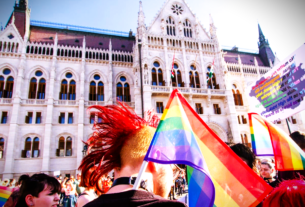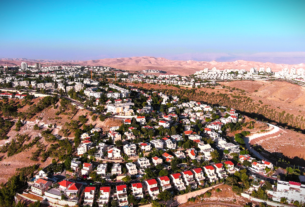Mass Detentions in Federal Prisons Raise Human Rights Concerns
The Trump administration’s immigration crackdown has led to the incarceration of hundreds of immigrants in federal Bureau of Prisons (BoP) facilities, originally designed for criminal defendants. These detainees, many facing only civil immigration violations, report squalid conditions, including moldy food, overcrowded cells, and lack of medical care. Advocates argue that this strategy exemplifies a broader agenda of mass detentions and deportations, relying on an overburdened system ill-equipped and unsafe for managing immigration detainees.
Suppression of Political Dissent Through Deportations
In a controversial move, the administration has targeted activists and students for deportation under obscure laws. Mahmoud Khalil, a Columbia University student and activist, was detained without a warrant and faces deportation under a Cold War-era law, despite being a lawful permanent resident. Similarly, Momodou Taal, a Cornell University graduate student, voluntarily left the U.S. after being told to surrender to ICE, fearing for his personal safety. These cases have drawn comparisons to McCarthy-era tactics and raised alarms about the erosion of free speech rights.
Executive Order 14168 Sparks Legal Challenges
Executive Order 14168, signed by President Trump, has led to significant rollbacks in LGBTQ+ protections. The order has resulted in the transfer of transgender women to men’s prisons, denial of gender-affirming care, and revocation of passports for transgender individuals. Legal challenges argue that the order violates the Eighth Amendment’s prohibition against cruel and unusual punishment and the Fifth Amendment’s Due Process Clause. Federal judges have issued temporary restraining orders against certain provisions of the order, citing constitutional concerns.
The administration’s aggressive deportation policies have also led to the separation of families and deportations without due process. In one case, a Venezuelan immigrant was deported without her 2-year-old daughter, who remains detained in Texas. In another, a gay Venezuelan asylum-seeker was mistakenly identified as a gang member based on tattoos and deported to a notorious prison in El Salvador. These actions have drawn international condemnation and legal scrutiny.
Conclusion
The Trump administration’s policies have raised serious concerns about the state of civil liberties and human rights in the United States. Advocates warn that these actions represent a systematic effort to suppress dissent, target marginalized communities, and erode constitutional protections. As legal challenges unfold, the nation grapples with the implications of these policies on its democratic foundations.




